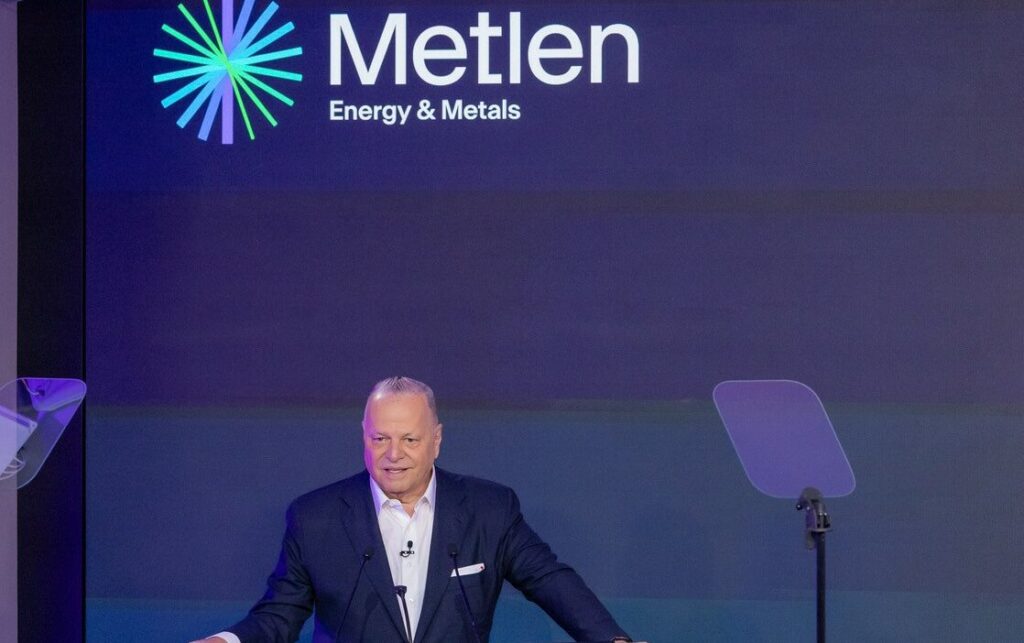Evangelos Mytilineos, founder and CEO of METLEN, in an interview with the British broadcasting network BBC, emphasized regarding his company’s London Stock Exchange listing that the United Kingdom was the most attractive place for the IPO of the international energy and mining company. “The trend is changing” after the difficult period following Brexit, when the London Stock Exchange appeared less attractive.
Read: Metlen: Record turnover in first half for Evangelos Mytilineos’ industrial giant
His comments come in contrast to widespread concerns about the steady departure of major companies from British markets, mainly to the United States. However, Mr. Mytilineos highlighted that high energy costs pose an obstacle for European and British consumers and that politicians have not been honest about the true cost of the energy transition. METLEN employs nearly 10,000 workers in 40 countries and moved its primary listing from Athens to London last August. With a total value of over £5 billion, it was the fastest company to join the FTSE 100 index, representing the UK’s most important listed companies.
The inclusion came at a time when several major British companies were abandoning the London Stock Exchange to list on foreign markets. Tech giant ARM Holdings is now listed in New York, Paddy Power’s parent company Flutter is investing in the American market, while mining giant BHP returned to Australia. Rumors are also circulating about the future of traditional British companies like Shell and AstraZeneca, the country’s most important company. Mr. Mytilineos mentioned that while he was interested in the higher valuations offered by American markets, he assessed that London was more suitable both culturally and business-wise.
“First of all, most of our senior executives started their careers in England,” he said. “Everyone feels the United Kingdom is their home. A significant part of our activities is here, and the rest mainly in Europe. We don’t have substantial activity in the US.” He added that American exchanges have many companies, saying: “I don’t think we could have attracted the same interest for the company there.” Mr. Mytilineos said the London Stock Exchange appeared “sidelined” in the years after Brexit, but other European financial capitals failed to capitalize on the opportunity.
“Frankfurt, Paris, Milan, or Amsterdam failed to surpass London and, having survived a difficult period, I believe it is now on a recovery path,” he said. Energy prices in the United Kingdom “are not sustainable.” The METLEN CEO appeared stern regarding the UK’s and Europe’s energy policy, which is crucial for his business — “metal is essentially energy in solid form,” as he characteristically stated.
Mr. Mytilineos is also chairman of Eurometaux, Europe’s Non-Ferrous Metals Association, and emphasized that higher energy costs compared to the US have severely hit the industry. “The situation with energy costs in industry, both in the UK and Europe, is not sustainable,” he said. “We have hundreds of members. A large number of the most energy-intensive businesses have closed in the last three years, all due to energy costs. They simply cannot be competitive. It’s that simple.”
He added that, although he supports “the green transition,” politicians have not been honest about the true cost of the massive investments required for energy infrastructure. “Most companies were positive when politicians asked them ‘do you want us to move fast with the green revolution?'” he said. “But the question should have been: ‘are you ready to accept that 30% of your salary for the next 30 years will have to go to the green transition?’ — then perhaps the answer would have been very different.”
Evangelos Mytilineos’ political messages on BBC
Mr. Mytilineos noted that the experience of rising energy costs in the UK and Europe makes political messages coming from the US more attractive. He referenced US President Donald Trump’s speech at the United Nations last month, in which he denied climate change, calling it “the greatest scam ever perpetrated against the world” and dismissed the use of renewable energy sources. “This affects many people around the world,” said Mr. Mytilineos. “So, we may start seeing — as is already happening in Europe — right-wing parties increasingly blocking energy transition measures.” The solution, he argued, is more honest dialogue.
“We need to weigh societies’ needs and the means to achieve the goal — what we have available and how we can get there,” he said. He added that a substantial, large-scale discussion about the energy transition has not yet taken place. “Let’s sit down and see how much money we have, how much we can invest in infrastructure,” he said. “And let’s explain it to citizens. If we don’t do this, we won’t have them with us, and resistance will keep growing.”
Mr. Mytilineos also expressed confidence that the UK and EU can reach an agreement on steel tariffs. The EU proposes imposing a 50% tariff from June next year on all steel imports from non-EU countries — including the United Kingdom — to protect European producers. “My sense from Brussels is that the climate toward the UK is much friendlier than three, four, or five years ago. The fact that the UK is willing to support Europe in defense has greatly improved the climate for reaching agreements on such issues,” he concluded.




